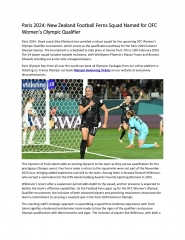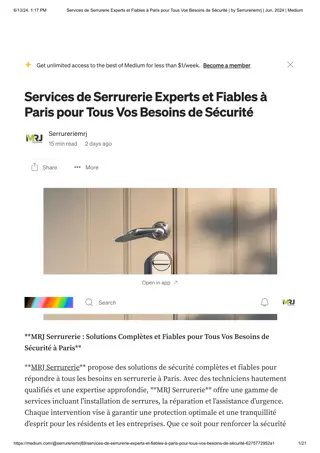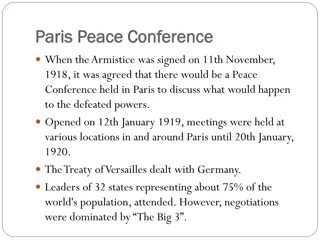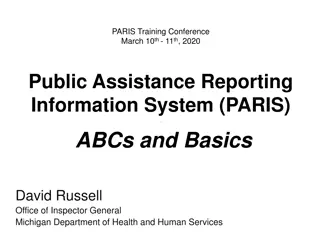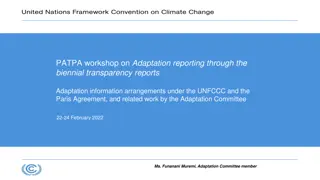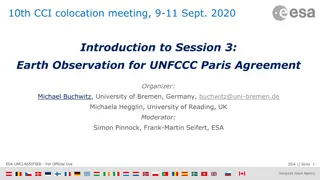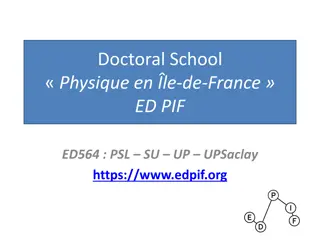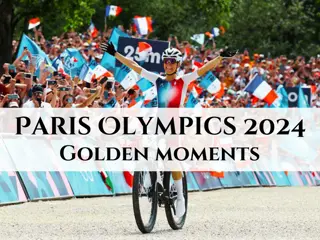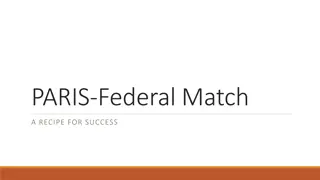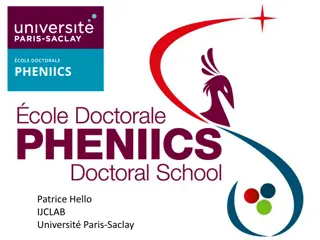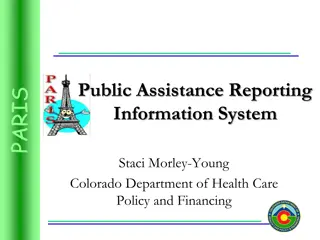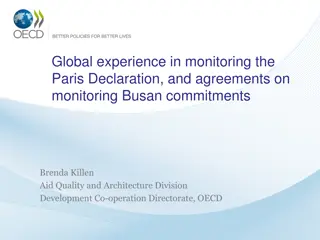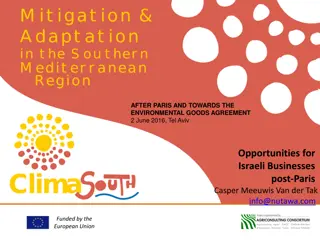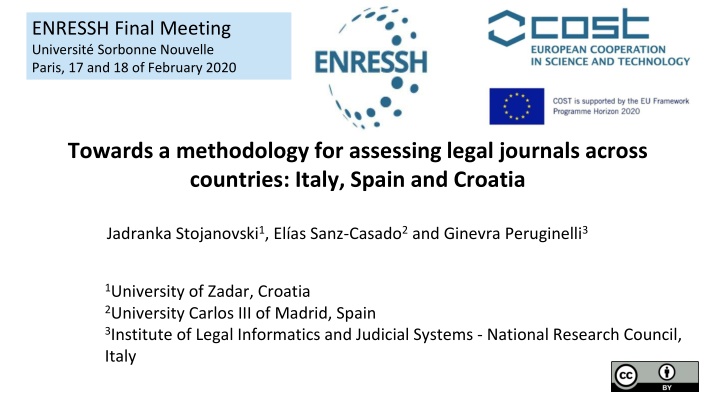
Methodology for Assessing Legal Journals in European Countries
Explore the evaluation of legal journals in Italy, Spain, and Croatia through a comprehensive analysis of peer review processes and journal policies. The study aims to bridge the gap in assessing quality indicators for academic legal publications.
Download Presentation

Please find below an Image/Link to download the presentation.
The content on the website is provided AS IS for your information and personal use only. It may not be sold, licensed, or shared on other websites without obtaining consent from the author. If you encounter any issues during the download, it is possible that the publisher has removed the file from their server.
You are allowed to download the files provided on this website for personal or commercial use, subject to the condition that they are used lawfully. All files are the property of their respective owners.
The content on the website is provided AS IS for your information and personal use only. It may not be sold, licensed, or shared on other websites without obtaining consent from the author.
E N D
Presentation Transcript
ENRESSH Final Meeting Universit Sorbonne Nouvelle Paris, 17 and 18 of February 2020 Towards a methodology for assessing legal journals across countries: Italy, Spain and Croatia Jadranka Stojanovski1, El as Sanz-Casado2and Ginevra Peruginelli3 1University of Zadar, Croatia 2University Carlos III of Madrid, Spain 3Institute of Legal Informatics and Judicial Systems - National Research Council, Italy
INTRODUCTION: Evaluation in Law Law as a discipline in crisis a science at the crossroads or the odd man out in the university . Variety of publications addressing multiple audiences, such as courts, legislators, practitioners, and other academics There is no European ranking of law journals, no generally accepted peer review system, no appropriate bibliometric databases, and no consensus on quality indicators for academic legal publications Peer review process as THE main qualitative indicator of legal scholarship 2
INTRODUCTION: Evaluation of legal journals Scholarly communication in legal sciences is influenced by a strong link between legal scholarship and legal practice Availability of different sets of criteria for the evaluation of the quality of journals. In Italy, such criteria are made specifically for classification of journals in no bibliometrics areas (such as law). In Croatia and Spain, an universal set of criteria is applied to journals from all disciplines (including law). 3
RESEARCH GOALS The objective of this study is to analyse available journal policies on peer review processes, in order to identify their characteristics. The selection of the law journals from three countries: Italy, Spain and Croatia 4
METHODOLOGY 110 Journals were selected and analyzed (34 Croatian, 36 Spanish, 40 Italian) For each journal, the information collected were: Journal title (original and English language), ISSN (print and online), DOI, Publishing frequency, URL, Publisher, Language and discipline Documents describing peer-review process: instructions for authors, instructions for peer reviewers, ethical documents, other documents document as an unit (case), one document per journal (English, Italian, Spanish and Croatian language) Content analysis and text mining tools: Provalis Research software for content analysis (QDA Miner and WordStat for word frequency analysis and text mining) automatic coding using non-validated categorization dictionary (main categories, sub-categories, words, phrases and rules) 5
CATEGORISATON DICTIONARY: 9 categories, 40 subcategories, 335 words, phrases and rules 6
LIMITATIONS OF THE STUDY not all Italian legal journals were included (150) peer review process description could be short and shallow, not fully reflecting practices peer review process description could be different from the employed peer review process (in practice) words and phrases included in the categorization dictionary could be ambiguous linguistic differences categorisation dictionary was not validated automatic, not manual coding 7
RESULTS: Category dictionary Peer review: process and reviewers Reviewer's characteristics: academic level, autonomy, competence, objectivity Reviewer's provenance: external, internal Peer review blindness: single-blind, double-blind, unanonymous, open peer review Number of reviewers: one, two, three or more Evaluation criteria for submissions: originality, methods, relevance, clarity, accuracy, soundness, impact, novelty, bibliography, interdisciplinarity Peer review outcome: peer review report, reviewer's recommendations (acceptance, rejection), manuscript revisions Ethical issues: editorial standards and codes, conflict of interests, confidentiality, research integrity, unbiased peer review Manuscript type: original scientific article, professional article, review article, book review, etc. FREQUENCY CATEGORIES % PEER REVIEW 1012 19.1 REVIEWER_CHARACT 242 4.58 REV_PROVENANCE 6 0.11 BLINDNESS 161 3.05 REV_NUMBER 57 1.08 SUBMISS_EVAL_CRITERIA 940 17.80 REV_OUTCOME 380 7.20 ETHICAL ISSUES 485 9.19 MANUSCRIPT_TYPE 1997 37.82 8
RESULTS: Visualization of the word frequencies included in the dictionary 10
RESULTS: Reviewer's characteristics category Subcategories CROATIA ITALY SPAIN Autonomy 10 12 8 Competence Academic Level 15 23 58 41 27 2 Objetivity 23 21 2 11
RESULTS: Openness/blindness of the peer review process category Subcategories CROATIA ITALY SPAIN Anonymous 24 82 22 Double blind 7 15 10 Single blind 1 0 0 12
RESULTS: Submissions evaluation criteria category Subcategories Accuracy Bibliography Clarity Impact Interdisciplinarity Methods Novelty Originality Relevancy Soundness CROATIA 6 167 38 18 7 89 1 169 60 3 ITALY 17 46 26 13 2 28 3 88 31 0 SPAIN 3 22 10 4 1 14 0 51 22 1 13
RESULTS: Peer review outcomes category Subcategories CROATIA ITALY SPAIN Revisions 8 64 3 Revisions/Major_Revision 2 0 0 Revisions/Minor_Revision 2 0 0 Rev_Recommend/Acceptance 47 71 59 Rev_Recommend/Edict_Decision 34 9 4 Rev_Recommend/Rejection 12 2 9 Rev_Report 29 23 2 14
RESULTS: Ethical issues category Subcategories Confidentiality Conflict of interest Editorial standards Authorship CROATIA 12 36 28 18 ITALY 10 43 27 8 SPAIN 0 34 7 4 Fabrication Falsification Misconduct Plagiarism Unbias 1 3 63 24 55 0 0 10 24 35 2 6 16 16 3 15
RESULTS: Manuscript Type Manuscript type 1800 1600 Categories BOOK_REV CASE_NOTE ESSAY PROFESS_ART REVIEW_ART SCHOLARLY_ART TYPE_NOT_DEFINED CROATIA 21 1 0 35 11 148 860 ITALY 0 5 23 0 0 128 438 SPAIN 0 14 0 0 0 78 235 1400 1200 Frequency 1000 800 600 400 200 0 16
SOME CONCLUSIONS Similarities and differences in editorial processes and peer review in the journals across the 3 countries, as well as those produced in the country itself. Reviewer s characteristics (Academic level in first place), Peer review outcomes (Editor s decision in second place), in Ethical Issues (Research misconduct in first place). I Reviewer s characteristics (competences in first place), Peer review outcomes (Rejection in the second place), Ethical issues (Conflict of interest in first place) Reviewer's characteristics (competences in first place), Peer review outcomes (Revision in second place) and Ethical issues (Conflict of interest in first place) None of the three countries consider the research methods in the top positions of Submission evaluation criteria: Croatia in third place, and Italy and Spain in fourth 17
Towards a methodology for assessing legal journals across countries: Italy, Spain and Croatia Acknowledgment: ENRESSH STSM and our host Ginevra Peruginelli Future research: more countries included, join us! jadranka.stojanovski@irb.hr ginevra.peruginelli@igsg.cnr.it elias@bib.uc3m.es 18


